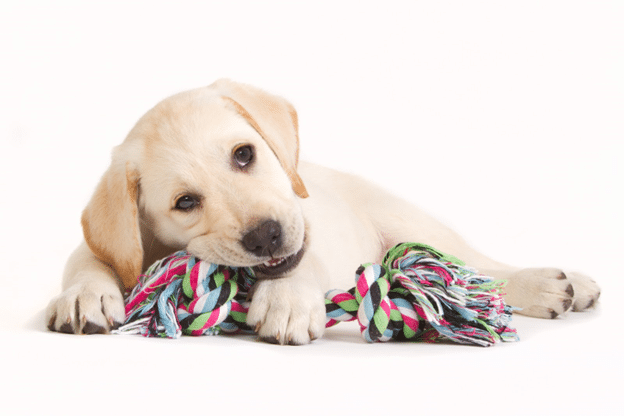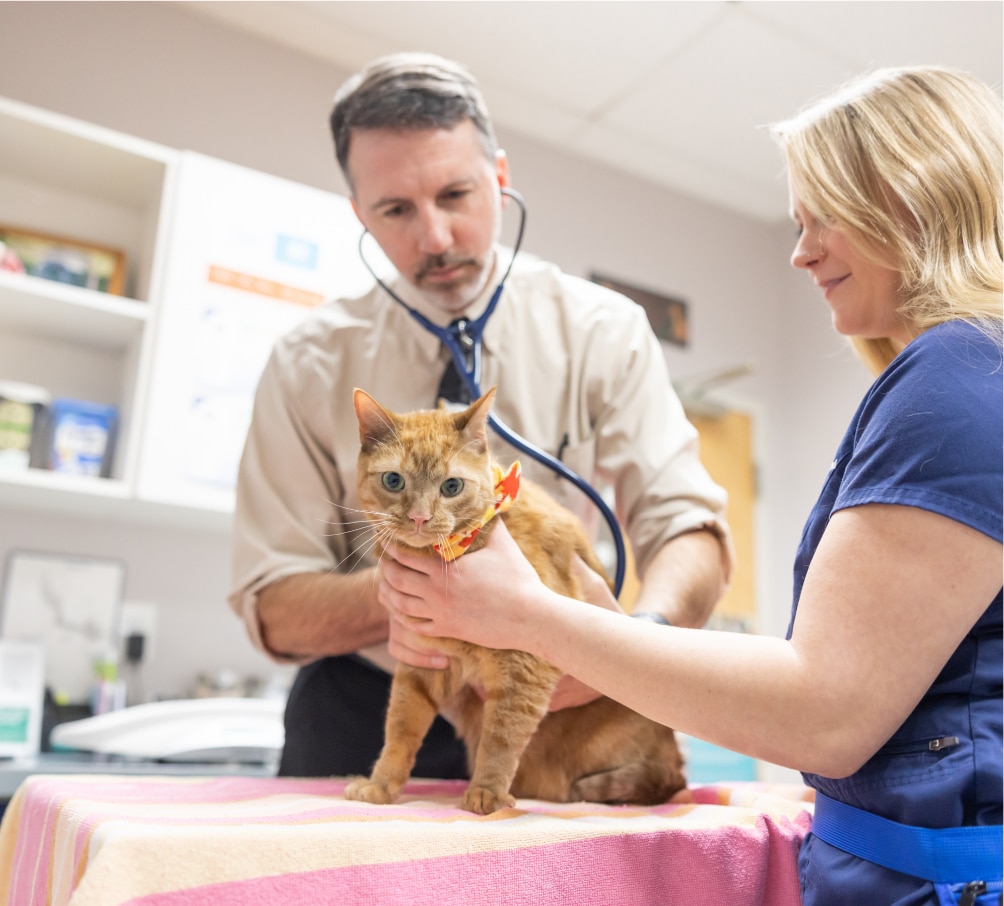Puppies are known to explore the world around them with their mouths, often leading to destroyed furniture, shoes, and more. This instinct gets more intense during the puppy teething stage.
Just like humans, puppies grow a set of baby teeth that eventually fall out to make room for their adult teeth. The process can be somewhat painful, and their gums are likely to be sore. To alleviate the pain, puppies chew on anything they can get their paws on. It can be an annoying time for any pet owner, but eventually, it will pass. Luckily, there are some things you can do to limit the damage and help your furry friend through the discomfort.
All About Puppy Teeth
Puppies are born without teeth. Around 3 weeks of age, the baby teeth start to grow in. This is also when you can start adding solid food to their diet in addition to milk. By the time they are 6 to 8 weeks old, they should have all 28 of their baby teeth.
At approximately 4 to 5 months old, they will begin to lose their baby teeth. Large dog breeds tend to lose their teeth first, while smaller breeds might keep their baby teeth until they are 5 to 6 months old.
This is typically when the teething will begin. You will notice more intense chewing as well as increased nipping at people and other pets. This instinct decreases pain and helps to wiggle the loose teeth out.
How Long Does the Teething Stage Last?
Puppies are considered to be teething until all 42 of their adult teeth have grown in. This is typically between 4 and 7 months of age.
Don’t be alarmed if you find little puppy teeth on your floor or stuck in their toys. Don’t be alarmed if you don’t see any teeth, either. Puppies often swallow their baby teeth and it is completely harmless to them.
You might also notice a little bit of blood around the gums and on anything the puppy chews. Once again, this is normal. However, if there is a lot of blood, severe swelling, signs of infection, or teeth that do not fall out after 7 months, your puppy should be seen by a veterinarian.
How Can I Help My Teething Puppy?
The best way you can help your puppy while he is teething is to provide an abundance of toys for him to chew on – particularly soft or rubber toys.
Whenever you notice your puppy chewing on something he shouldn’t be, redirect him with a toy. Do not hit or physically punish him. This is unlikely to change his behavior because the instinct to chew cannot be trained away, especially during the puppy phase.
Your pup is likely to tear through these toys, so make sure they are frequently replaced. Keep an eye out for any large pieces breaking off the toy. Your dog might try to digest these pieces, which can cause other issues.
Another way you can help your puppy is by providing chilled or frozen toys and treats. Kibble, blueberries, green beans, and carrots can be frozen and given to your pup. The cold will reduce inflammation and temporarily numb the painful area.
It’s important to note that during the teething time frame not all chewing is caused by pain. Sometimes, puppies are just curious or a little mischievous. That’s why it’s important to redirect your puppy to appropriate chewing items every time you notice the behavior.
What If My Puppy Keeps Nipping, Biting, and Chewing?
Even after the teething stage, your pup might continue the naughty behavior of nipping, biting, and chewing. Not only is this annoying, but it can also be dangerous for other pets and small children.
Typically this behavior is not aggressive, but rather the result of excitement or curiosity. Puppies are tasked with learning bite inhibition, which allows them to play without using the full force of their bite. When your puppy bites another dog too hard, that dog will yelp, informing him he has crossed a line.
You can use the same strategy with your pup. If he bites you during play, shout “Ow!” and praise him when he backs off.
However, some dogs might be more excited by the commotion. In this case, simply ignore the pup and walk away, or put him in his kennel for a few minutes to calm down. Eventually, he will learn that he can either bite or he can play, but he can’t do both.
If your puppy seems to be developing aggressive or territorial behaviors, the biting will be more difficult to redirect. Puppy training classes might help, or your vet can recommend other methods to curb the behavior.
Above all, make sure your pet has the stimulation and enrichment he needs to burn off energy and appropriately release the chewing instinct. Frequent walks, exercise, plenty of toys, love, and play should do the trick.
Veterinary Care For Puppies in Frederick, MD
If you’ve got a new puppy in your household, bring him to Old Farm Veterinary Hospital! Our caring team of vets can provide everything he needs for a long, healthy, and happy life. This includes dental treatment, vaccines, grooming, and more! Call now!



